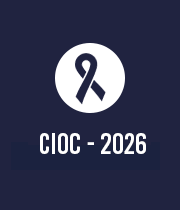Title : The direct and indirect effects of affluence on survival in colon cancer : A population-Based study
Abstract:
Background: Colorectal cancer is the fourth most common cancer in the UK. Socio-economic disparities are apparent in colorectal cancer survival in the UK and elsewhere. However, it is not known whether socio-economic status has a direct influence on survival or whether it operates via other factors, such as stage. We investigated the direct and indirect effects of deprivation on colon cancer survival.
Methods: Cases of colon cancer [ICD10 C18] diagnosed 2001-2010 were identified from the Northern and Yorkshire Cancer Registry. Deprivation was based on the IMD income domain of the area of residence at diagnosis. Using a discrete-time survival model within a structural equation modelling-type approach, the direct and indirect effects of deprivation, and other explanatory variables, on the hazard of all-cause mortality were analysed.
Results: 31,779 cases of colon cancer were included. Those resident in more affluence areas had significantly earlier stage of disease, received optimal (rather than sub-optimal) treatment and started treatment promptly (≤31 days from diagnosis). Affluence significantly and directly reduced the hazard of mortality. Optimal treatment, female sex, and more recent year of diagnosis also directly reduced the hazard while increasing age, untimely treatment and later stage directly increased it. The hazard of mortality was reduced indirectly by affluence, mediated by increased optimal treatment, and reduced untimely treatment and late stage.
Conclusion: These findings demonstrate that deprivation has a direct effect on survival in patients with colon cancer. Moreover, patients resident in deprived areas are further disadvantaged by sub-optimal and untimely treatment.



